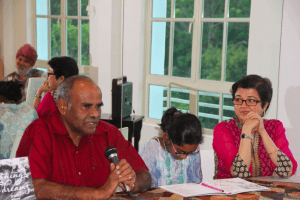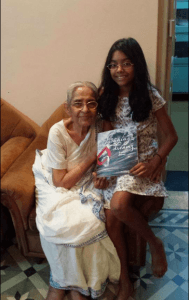https://www.bruineconjournal.com/ourarticles/xjd1obp8qjcupynifj7a1t39nh4zqi
Recently, a piece of news that has rocked the world and brought humanity to a point where we feel that we might be at the point of no return is the news of a deadly virus called 2019-NCOV. It was on December 31, 2019, that the Chinese government alerted the World Health Organisation (WHO) about a new virus that was spreading in the city of Wuhan. The symptoms of this strange illness were fever, dry cough, and pneumonia and soon deaths were reported much to the consternation of the world population.
A piece of information that was available to the public was the term “wet markets” of China. If in 2019, a deadly pandemic had spread from the wet markets of Wuhan, then in 2003, a very similar virus had emerged from a wet market in Foshan, China. The earlier disease was SARS which too spread across the world, killing nearly 800 people. This time, of course, the pandemic has been much worse in its impact as the count of infected victims as of August (2020) is 739,770. What is interesting is the common theme of Chinese wet markets which lie at the source of both viruses which put global health at risk.
The similarities between the two pandemics raises the question: Why do new viruses keep emerging from China?
A great number of body parts of rare wildlife species like pangolins, tigers, rhinos and bears land up in the wet markets of China. Not only dead animals, but live ones are also caged and sold under shockingly unsustainable conditions. Most of this wet market trade caters to the demand for Chinese Traditional Medicine (TCM). To cater to the popular demand for TCM as well as everyday consumption, animal farms have developed across China, as part of a Chinese practice when traditionally undomesticated animals are placed in an agricultural setting for purposes of breeding.
As the aftermath of the coronavirus reveals, almost 20,000 wildlife farms raising species like, civet cats, peacocks, ostriches and porcupines were shut down across China. The closure of the farms has exposed the unknown size of the animal farming industry. As a 2017 report by the Chinese Academy of Engineering reveals, the value of the operations of the wildlife-farming industry was at a startling £57bn.
Despite the protests of NGOs like WWF and PETA, the practice of animal farms and illegal trafficking of animals and birds have continued. Though apparently the Chinese government has been responsible for creating several laws which strengthen the regulations on selling, purchase and trade of animals and animal products, they have not really been effective. This is primarily because the laws have loopholes which prevent proper execution. Thus, China’s first law regarding the protection of wild animals was the 1988 Wildlife Protection Law (WPL) which stated that animals in China were for human consumption, domestication and acted as resources owned by the state which merely led to a spike in wildlife trade and the unsustainable use of animals. Similarly, the 2016 WPL allowed for the sale, purchase, and utilization of protected wildlife for purposes of “scientific research, captive breeding, public exhibition and performance, and protection of cultural relics.” (uscc.gov). This led to the WPL not prohibiting commercial captive wildlife breeding which further convoluted legal systems and led to increased laundering of illegal products.
Interestingly, though the wildlife farming industry is a tiny part of China’s gigantic GDP, the industry has an enormous lobbying capability. It has been conjectured that it is the rich minority who buy the wildlife products for themselves and for further business, and it is due to the lobbying by the rich that the Chinese government has allowed these illicit markets to grow. However, according to the Chinese leadership, the government has been supportive of the idea of “wildlife domestication” only because wildlife trade plays a critical part in rural development, eco-tourism and poverty alleviation. This is commensurate with the idea of the government’s commitment to the idea of common prosperity for all. The Chinese government has attempted to deliver the benefits of economic and social development to its entire population and according to the authorities, the poverty alleviation programme has already lifted more than 500 million people out of poverty in China after three decades of economic reforms.
It is true that the underdeveloped rural areas of China rely heavily on the wildlife industry and farming for economic development and the Chinese government recently has outlined a plan to completely eliminate poverty in rural areas of China by 2020. Hence, an abrupt ban on wildlife trading could potentially trigger a mass rural unemployment and the government’s failure to meet its poverty alleviation targets. Thus, it is going to be a tricky balance between environmental sustainability and human economic development.
During SARS, which was caused by Civet cats, China had banned the trade and selling/purchasing of all wild animals. However, post-SARS, the wildlife trading laws were relaxed and soon wild animals were being traded through China’s borders once again, leading to the question of whether after the 2019 pandemic, will the bans on wildlife trading, selling, purchasing consumption remain effective?
Written by Ananya Sengupta, Student at UWCSEA East
[Presented by the UCLA Undergraduate Economics Society.]


